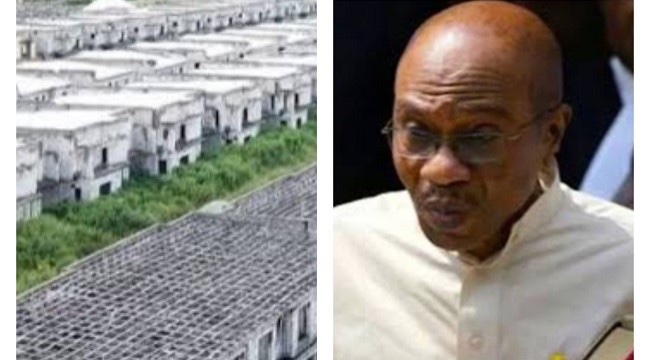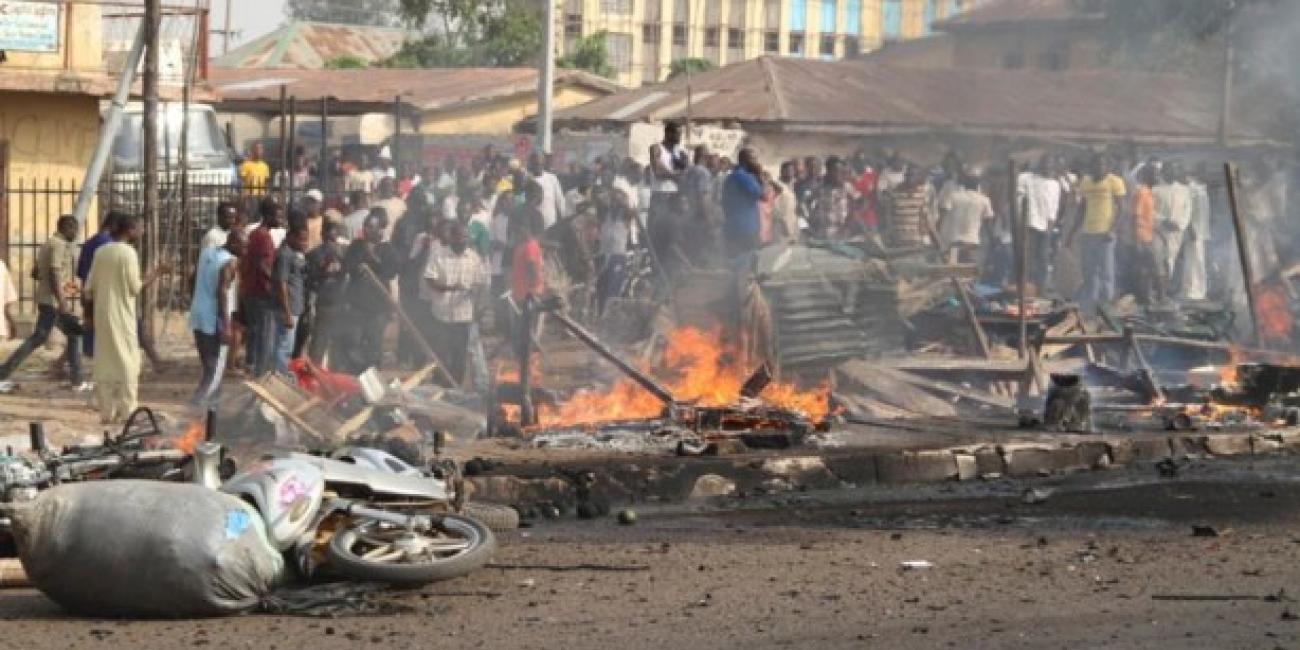On June 16, 2025, the Federal Capital Territory (FCT) High Court in Abuja granted bail to Godwin Emefiele, the former Governor of the Central Bank of Nigeria (CBN), in the sum of ₦2 billion. This ruling came during his arraignment on an eight-count charge brought by the Economic and Financial Crimes Commission (EFCC), accusing him of fraudulently acquiring a 753-unit housing estate in Lokogoma, Abuja, and misappropriating billions of naira through proxy accounts. Justice Halilu Yusuf, presiding over the case, ordered Emefiele to deposit his travel documents with the court and mandated that he perfect the bail conditions by Wednesday, June 18, 2025, or face remand in custody.
The charges against Emefiele stem from allegations that he abused his position as CBN Governor to orchestrate financial misconduct. Specifically, the EFCC claims that between 2014 and 2020, Emefiele used proxies to acquire the multi-billion-naira estate and diverted public funds through illicit transactions. The prosecution argued that these actions violated anti-corruption laws and constituted a breach of public trust, prompting the court to consider stringent bail conditions to ensure Emefiele’s compliance with the judicial process.
Justice Yusuf, in his ruling, noted that Emefiele had been granted bail in three other criminal cases without any reported violations. He emphasized that bail is a constitutional right, provided the defendant meets the stipulated conditions. The court set the bail at ₦2 billion with two sureties in like sum, who must own properties valued at no less than ₦2 billion each in upscale areas of Abuja, such as Asokoro, Maitama, or Wuse 2, within the court’s jurisdiction.
The bail conditions also require Emefiele to surrender all international travel documents to prevent any possibility of fleeing the country. The judge further directed that the sureties provide verifiable proof of property ownership, ensuring the court’s ability to enforce compliance. Failure to meet these conditions by the specified deadline will result in Emefiele’s detention until the trial resumes.
The EFCC’s case against Emefiele is part of a broader investigation into alleged financial improprieties during his tenure as CBN Governor. The prosecution alleges that the 753-unit duplex estate was acquired through fraudulent means, including the use of shell companies and intermediaries to obscure the trail of funds. These accusations have drawn significant public attention, given Emefiele’s high-profile role in Nigeria’s financial sector.
Emefiele’s defense team, led by senior counsel, argued that their client is not a flight risk and has cooperated with authorities in previous cases. They urged the court to grant bail on lenient terms, citing Emefiele’s status as a former public official with no prior convictions. However, the court balanced these arguments with the severity of the charges, opting for stringent conditions to reflect the gravity of the allegations.
The trial has been adjourned to July 11, 2025, to allow the prosecution and defense to prepare their cases. The EFCC indicated its readiness to present witnesses and documentary evidence to substantiate the charges. Meanwhile, Emefiele’s legal team expressed confidence in their ability to challenge the allegations, asserting that the evidence would be rigorously contested in court.
Public reaction to the case has been mixed, with some Nigerians viewing it as a step toward accountability for high-ranking officials, while others see it as a politically motivated prosecution. The case underscores ongoing efforts by the EFCC to combat corruption and recover illicitly acquired assets. The outcome of this trial could have significant implications for Nigeria’s anti-corruption framework and public trust in its institutions.
The court’s decision to grant bail, albeit with strict conditions, reflects a cautious approach to balancing the defendant’s rights with the need to ensure justice. Emefiele’s ability to meet the ₦2 billion bail and secure sureties will be closely watched in the coming days. The requirement for property-owning sureties in specific Abuja districts adds a layer of complexity, given the high value of real estate in those areas.
As the case progresses, legal analysts anticipate intense scrutiny of the EFCC’s evidence, particularly regarding the alleged proxy accounts and the acquisition of the Lokogoma estate. The prosecution will need to establish a clear link between Emefiele’s actions and the misappropriated funds to secure a conviction. Conversely, the defense is expected to challenge the authenticity and admissibility of the evidence, potentially prolonging the legal battle.
The adjournment to July 2025 provides both parties with ample time to refine their strategies. For Emefiele, the immediate priority is complying with the bail conditions to avoid detention. The case continues to highlight the challenges of prosecuting high-profile financial crimes in Nigeria, where legal proceedings often face delays and public skepticism.




